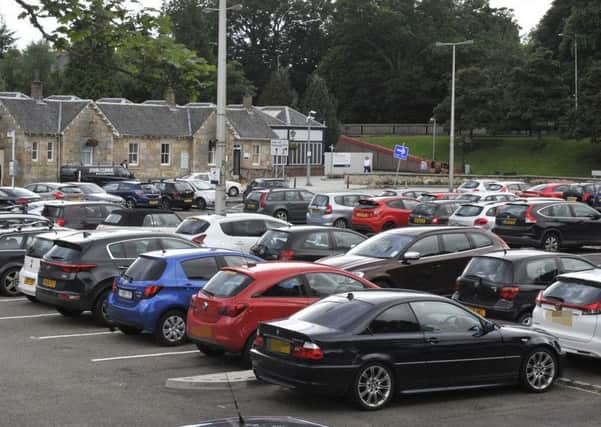Parking levy in Scotland ‘could force teachers to quit the profession’


The workplace parking levy (WPL) proposed in the Scottish Government’s budget could “exacerbate” existing problems for schools in recruiting and retaining staff, the EIS union said.
The plan, which is designed to reduce road congestion and encourage the use of more environmentally friendly modes of transport, was unveiled by ministers on Thursday.
Advertisement
Hide AdAdvertisement
Hide AdIt was one of a number of concessions that finance secretary Derek Mackay was compelled to make to win support for his spending plans from the Scottish Greens’ six MSPs.
Under the plans, the Scottish Government will support an amendment to the Transport Bill giving councils the power to introduce a parking tax for businesses and other employers.
It means firms that provide free parking for employees could face hefty new taxes in an extra cost they could pass on to employees.
The level of the fee will be set by individual councils. However, a scheme already operating in Nottingham charges £415 per space, while Hounslow council in west London is planning to introduce a levy of between £500 and £1,000.
The only exceptions will be hospitals and NHS properties.
The EIS said that if schools were not also exempted from the plans, teachers could find themselves having to pay extra fees to park at school, making the profession less attractive.
An EIS spokesman said: “Teachers arrive at school early and often leave late, frequently have to carry heavy books for preparation and correction, plus public transport is often not a realistic option for travel to many schools.
“Teachers’ pay has been cut in real terms by more than 20 per cent over the past decade, so introducing a parking charge could further increase the financial pressures on teachers. Schools in many areas are already struggling to fill teaching posts, so anything that might make working in schools less attractive could exacerbate the current challenges in teacher recruitment and retention.”
The Scottish Conservatives also called for schools to be exempted from the tax, pointing out that ministers’ relations with teachers were already strained due to the ongoing row over pay. The party’s finance spokesman Murdo Fraser said: “If the SNP wants to crash ahead with this unpopular and ridiculous car park tax plan, the least it could do is exempt teachers.
Advertisement
Hide AdAdvertisement
Hide Ad“The Nationalists find themselves in an absurd position of negotiating a pay rise for teachers, while threatening to charge them hundreds of pounds a year for the sake of driving to work.”
However, the new tax was welcomed by Friends of the Earth Scotland, which said it would cut damaging emissions and reduce air pollution in cities.
The group’s air pollution campaigner Gavin Thomson said: “Public transport users are disproportionately lower paid workers or those seeking employment, so finding funding mechanisms that improve the availability and accessibility of public transport begins to address the fundamental unfairness of our current transport system.”
A Scottish Government spokeswoman said: “Plans to give powers to councils to introduce a workplace parking levy, as already allowed in England, will come forward via an agreed Green Party amendment to the Transport (Scotland) Bill.
“We have said that this is contingent on exemptions for health service workers.”